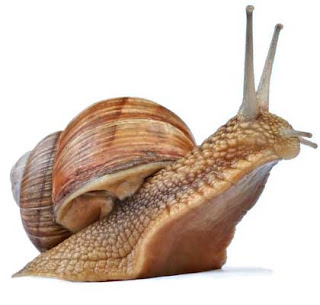Vladimir Putin-Leader of Russia
Vladimir Putin-President of Russia

Vladimir Vladimirovich Putin is the current President of the Russian Federation, holding the office since 7 May 2012. He was Prime Minister from 1999 to 2000, President from 2000 to 2008, and again Prime Minister from 2008 to 2012.[4] During his second term as Prime Minister, he was the Chairman of the ruling United Russia Party.
Born in Leningrad (now Saint Petersburg), Putin studied German in high school and speaks the language fluently. He studied Law at the Saint Petersburg State University, graduating in 1975.[7] Putin was a KGB Foreign Intelligence Officer for 16 years, rising to the rank of Lieutenant Colonel before retiring in 1991 to enter politics in Saint Petersburg. He moved to Moscow in 1996 and joined President Boris Yeltsin's administration, rising quickly through the ranks and becoming Acting President on 31 December 1999, when Yeltsin resigned. Putin won the subsequent 2000 Presidential election by a 53% to 30% margin, thus avoiding a runoff with his Communist Party of the Russian Federation opponent, Gennady Zyuganov. He was re-elected President in 2004 with 72% of the vote.
During Putin's first presidency, the Russian economy grew for eight straight years, and GDP measured in purchasing power increased by 72%. The growth was a result of the 2000s commodities boom, high oil prices, and prudent economic and fiscal policies. Because of constitutionally mandated term limits, Putin was ineligible to run for a third consecutive presidential term in 2008. The 2008 Presidential election was won by Dmitry Medvedev, who appointed Putin Prime Minister, beginning what has been called a period of "tandemocracy". In September 2011, after presidential terms were extended from four to six years, Putin announced he would seek a third term as president. He won the March 2012 presidential election with 64% of the vote, a result which aligned with pre-election polling. Falling oil prices coupled with international sanctions imposed at the beginning of 2014 after Russia's annexation of Crimea and military intervention in Eastern Ukraine led to GDP shrinking by 3.7% in 2015, though the Russian economy rebounded in 2016 with 0.3% GDP growth and is officially out of the recession.
Military development
The resumption of long-distance flights of Russia's strategic bombers was followed by the announcement by Russian Defense Minister Anatoliy Serdyukov during his meeting with Putin on 5 December 2007, that 11 ships, including the aircraft carrier Kuznetsov, would take part in the first major navy sortie into the Mediterranean since Soviet times. The sortie was to be backed up by 47 aircraft, including strategic bombers.
While from the early 2000s Russia started placing more money into its military and defence industry, it was only in 2008 that the full-scale Russian military reform began, aiming to modernize Russian Armed Forces and making them significantly more effective. The reform was largely carried out by Defense Minister Anatoly Serdyukov during Medvedev's Presidency, under the supervision of both Putin, as the Head of Government, and Medvedev, as the Commander-in-Chief of the Russian Armed Forces.
Key elements of the reform included reducing the armed forces to a strength of one million; reducing the number of officers; centralising officer training from 65 military schools into 10 'systemic' military training centres; creating a professional NCOcorps; reducing the size of the central command; introducing more civilian logistics and auxiliary staff; elimination of cadre-strength formations; reorganising the reserves; reorganising the army into a brigade system, and reorganising air forces into an air base system instead of regiments.[212]
The number of Russia's military districts was reduced to four. The term of draft service was reduced from two years to one, which put an end to the old harassment traditions in Russian army, since all conscripts became very close by draft age. The gradual transition to the majority professional army by the late 2010s was announced, and a large programme of supplying the Armed Forces with new military equipment and ships was started. The Russian Space Forces were replaced on 1 December 2011 with the Russian Aerospace Defence Forces.
In spite of Putin's call for major investments in strategic nuclear weapons, these will fall well below the New START limits due to the retirement of aging systems.
Putin has also sought to increase Russian territorial claims in the Arctic and its military presence here. In August 2007, Russian expedition Arktika 2007, part of research related to the 2001 Russian territorial extension claim, planted a flag on the seabed below the North Pole. Both Russian submarines and troops deployed in the Arctic have been increasing.
Civilian awards presented by different countries
In 2006-Putin was awarded the Order of Sheikh ul-Islam for his role in interfaith dialogue between Muslims and Christians in the region.
In Sept 2006-France's president Jacques Chirac awarded Putin the Grand-Croix (Grand Cross) of the Légion d'honneur to celebrate his contribution to the friendship between the two countries






Comments
Post a Comment